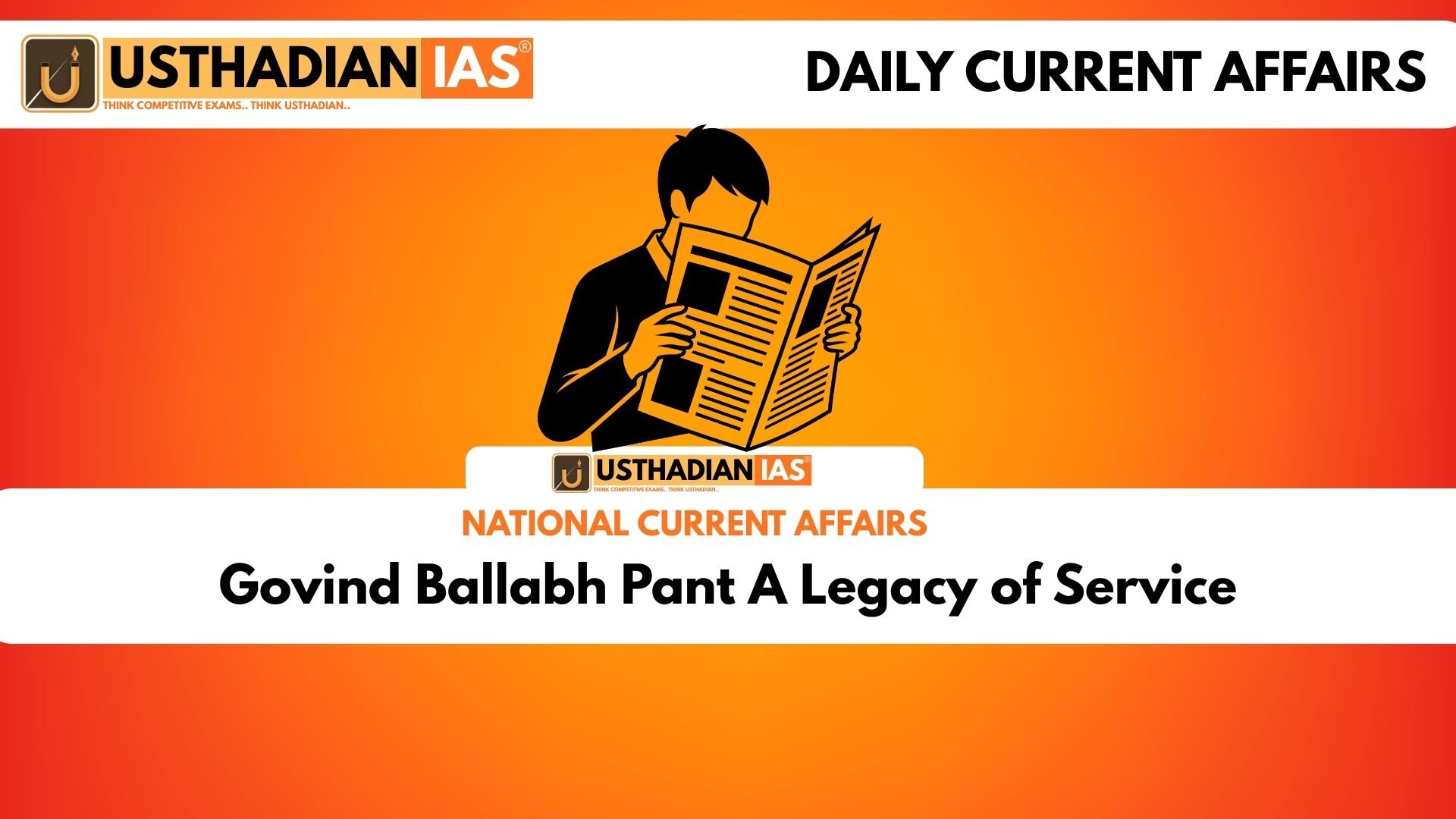Early life
Govind Ballabh Pant A Legacy of Service: Govind Ballabh Pant was born on 10 September 1887 in Almora, Uttarakhand. His early education and exposure to nationalist thought shaped his dedication to the freedom struggle. He founded the Kumaon Parishad in 1916, which later merged with the Indian National Congress to mobilize the people of the region.
Static GK fact: Almora is also known as the cultural capital of Kumaon region in Uttarakhand.
Political beginnings
Pant entered active politics when he was elected to the United Provinces Legislative Council in 1923 on a Swaraj Party ticket. He was deeply influenced by the ideology of Bal Gangadhar Tilak and later aligned closely with the Congress movement under Mahatma Gandhi.
Static GK Tip: The Swaraj Party was founded in 1923 by C. R. Das and Motilal Nehru.
Role in freedom movement
Pant actively participated in the Salt March of 1930 and the Quit India Movement of 1942. He was imprisoned for planning the Civil Disobedience Movement, showcasing his courage and leadership in mass struggles. His role was crucial in uniting local movements with national campaigns.
Chief Minister of Uttar Pradesh
After Independence, Pant became the first Chief Minister of Uttar Pradesh in 1937 under the Government of India Act and again after 1947 under the Constitution. He emphasized land reforms, abolition of zamindari, and upliftment of peasants, which marked a turning point in agrarian policies.
Static GK fact: Uttar Pradesh was known as the United Provinces before 1950.
Home Minister of India
Pant served as Union Home Minister from 1955 to 1961. During his tenure, he played a central role in the linguistic reorganization of states, ensuring administrative efficiency and regional harmony. His tenure strengthened India’s internal security and governance framework.
Static GK Tip: The States Reorganization Act came into effect in 1956, leading to the creation of linguistic states like Andhra Pradesh, Kerala, and Karnataka.
Recognition and values
In recognition of his contributions, Pant was awarded the Bharat Ratna in 1957. His life reflected courage, integrity, and compassion, making him a respected leader both during the freedom struggle and in post-independence governance.
Static GK fact: Bharat Ratna is the highest civilian award of India, instituted in 1954.
Legacy
Pant’s leadership combined nationalist fervor with administrative vision. From grassroots mobilization in Uttarakhand to shaping India’s internal structure, his legacy continues to inspire future generations of leaders. He passed away on 7 March 1961, but his role in nation-building remains enduring.
Static Usthadian Current Affairs Table
Govind Ballabh Pant A Legacy of Service:
| Topic | Detail |
| Birth | 10 September 1887, Almora, Uttarakhand |
| Organization founded | Kumaon Parishad in 1916 |
| First election | United Provinces Legislative Council, 1923 (Swaraj Party) |
| Freedom struggle role | Salt March, Civil Disobedience, Quit India Movement |
| First CM | Chief Minister of Uttar Pradesh |
| Union role | Home Minister of India (1955–1961) |
| Key reform | Linguistic Reorganization of States, 1956 |
| Award | Bharat Ratna, 1957 |
| Death | 7 March 1961 |
| Values | Courage, Integrity, Compassion |








